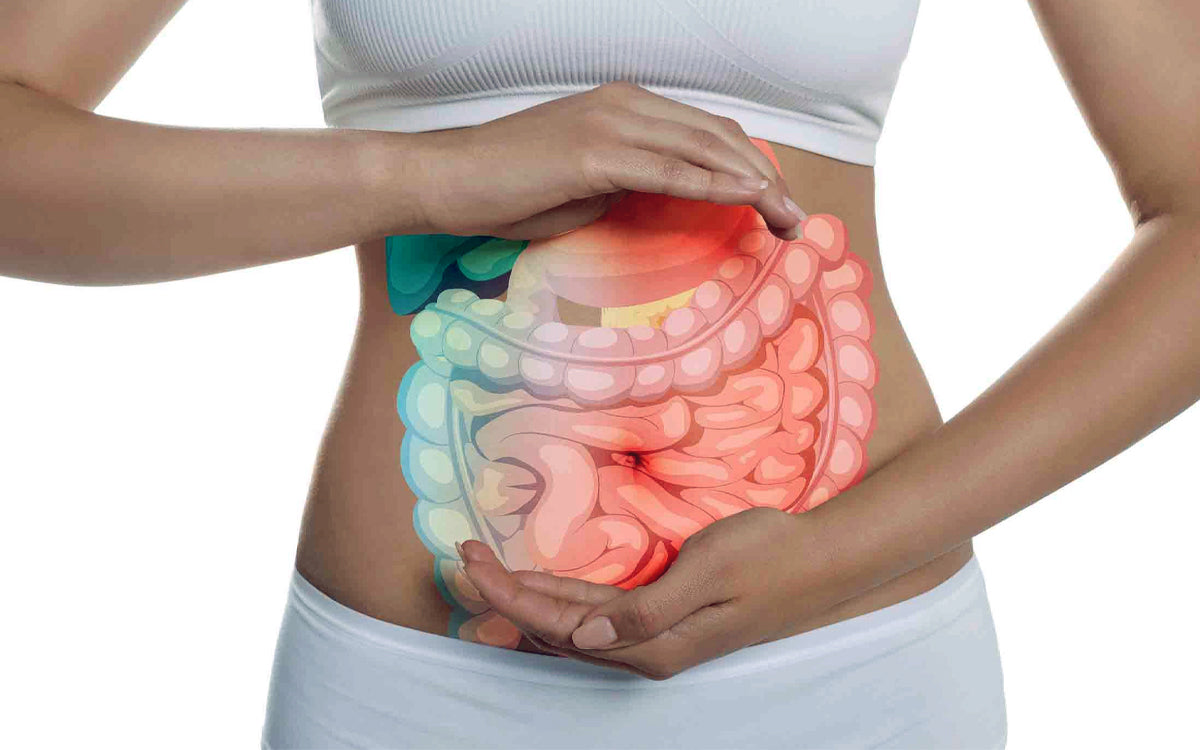
Common Myths About Gut Health What Science Really Says
We hear a lot about gut health these days, from probiotics to detox teas, and it seems like everyone has a “magic solution” for a happy belly. But with all the info swirling around, it's hard to know what’s real and what’s just hype. Here’s a breakdown of some common myths about gut health and what science actually has to say.
Myth 1: You Should Be Doing a “Gut Cleanse” to Flush Out Toxins.
Reality Check: The idea that we need to “cleanse” our gut is catchy but isn’t backed by science. Your body, especially your liver and kidneys, already does a fantastic job at filtering out waste and toxins. If you're eating a balanced diet with enough fiber and staying hydrated, your digestive system should run smoothly on its own.
Studies show that while certain foods and habits support a healthy gut, there’s no need for extreme “cleanses” or fasting programs to “flush out toxins.” In fact, these can sometimes do more harm than good, stripping the gut of beneficial bacteria or causing dehydration.
Myth 2: Probiotics Will Fix All Your Gut Issues.
Reality Check: Probiotics have been getting a lot of attention, and while they can be helpful, they’re not a cure-all. Probiotics are live bacteria that can support gut health, but everyone’s gut microbiome the collection of bacteria in your gut is unique. This means the effects of probiotics vary widely.
For some, probiotics can improve digestion and even help with certain issues like IBS. But for others, they might not make a noticeable difference. Also, not all probiotics are the same different strains serve different purposes, so it’s best to pick one suited to your needs and consult a healthcare professional if you’re unsure.
Myth 3: Fiber Is Overrated - You Don’t Need That Much.
Reality Check: Fiber is like a superstar for gut health. It’s not just hype science consistently shows that dietary fiber is essential for maintaining a balanced gut. Fiber acts like food for your good gut bacteria, helping them thrive and supporting healthy digestion.
According to health guidelines, most adults need around 25–30 grams of fiber per day, but many people only get half of that. So, rather than seeing fiber as optional, think of it as fuel for your microbiome. Including fiber-rich foods, like fruits, vegetables, whole grains, and specific products like SunFiber® Prebiotic Fiber Powder, can make a big difference.
Myth 4: The More Fermented Foods, the Better!
Reality Check: Fermented foods like yogurt, sauerkraut, and kimchi can support gut health by providing natural probiotics, but there’s no need to overload on them. In fact, for some people, too much fermented food can lead to bloating or discomfort.
If you’re new to fermented foods, start slow, and see how your body responds. And keep in mind that everyone’s tolerance varies, so focus on balance rather than loading up on every kombucha bottle or kefir brand on the shelf.
Myth 5: If You’re Bloated, It Means Your Gut Is Unhealthy.
Reality Check: Bloating is uncomfortable, but it doesn’t automatically mean something’s wrong with your gut. There are many reasons you might feel bloated eating too quickly, certain foods (like beans or carbonated drinks), or even stress.
A balanced gut can experience bloating from time to time, and it’s usually not cause for alarm. However, if bloating is chronic or comes with other symptoms, it might be worth checking in with a doctor or nutritionist to see if there’s an underlying issue.
Myth 6: Gut Health Is Only About Digestion.
Reality Check: It might surprise you, but gut health affects more than just your digestion. Studies reveal that gut health can impact immunity, mood, and even skin health. This is because of the “gut-brain axis” and the interactions between the gut and other systems in the body.
Supporting your gut is a great way to invest in overall well-being, so taking care of it is beneficial not only for digestion but for broader health, too.
Myth 7: Everyone Needs to Avoid Gluten for Better Gut Health.
Reality Check: Gluten-free diets are essential for people with celiac disease or gluten intolerance, but for most people, gluten isn’t an issue. Whole grains that contain gluten, like wheat and barley, actually offer important nutrients and can support gut health with their fiber content.
Unless you have a diagnosed gluten intolerance, there’s no scientific evidence suggesting that cutting gluten will improve your gut health. So, go ahead and enjoy that slice of bread or bowl of pasta—your gut will thank you for the fiber boost!
Myth 8: Gut Health Supplements Will Solve Everything.
Reality Check: Supplements can support gut health, especially if you have specific needs (like needing more fiber or probiotics), but they’re not a quick fix. A balanced diet rich in fruits, vegetables, whole grains, and fermented foods will have a more lasting impact on gut health than relying on supplements alone.
Think of supplements as an addition rather than a substitute for healthy eating habits. For example, MCT Oil Powder with Prebiotic Fiber could complement a gut-friendly diet, but it works best when paired with a nutrient-rich eating pattern.
Final Thoughts
Gut health is a hot topic for a reason: it's linked to many aspects of our well-being. But it's also an area filled with myths and marketing claims. Staying informed and focusing on balanced, evidence-based habits can help you keep your gut in check without falling for the fads. So next time you hear about a “miracle” gut fix, take it with a grain of salt and maybe a healthy serving of fiber.